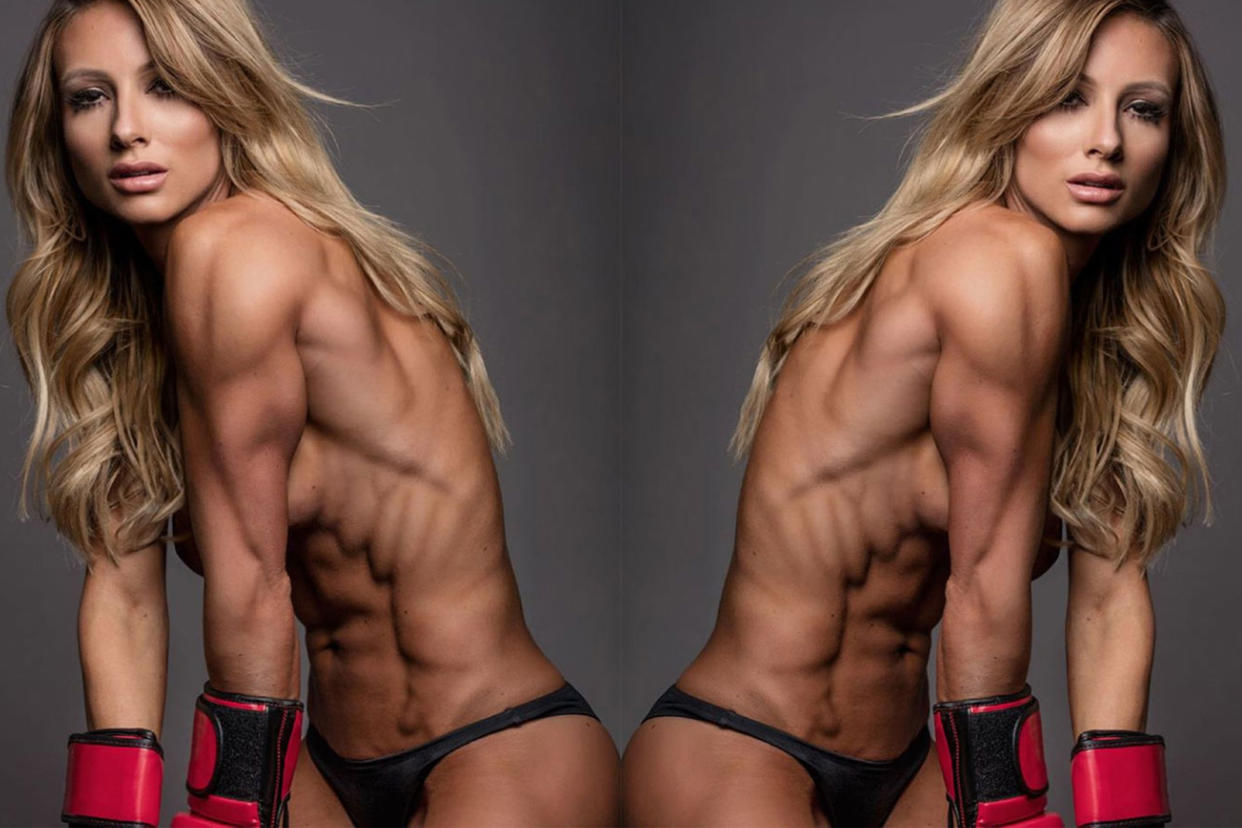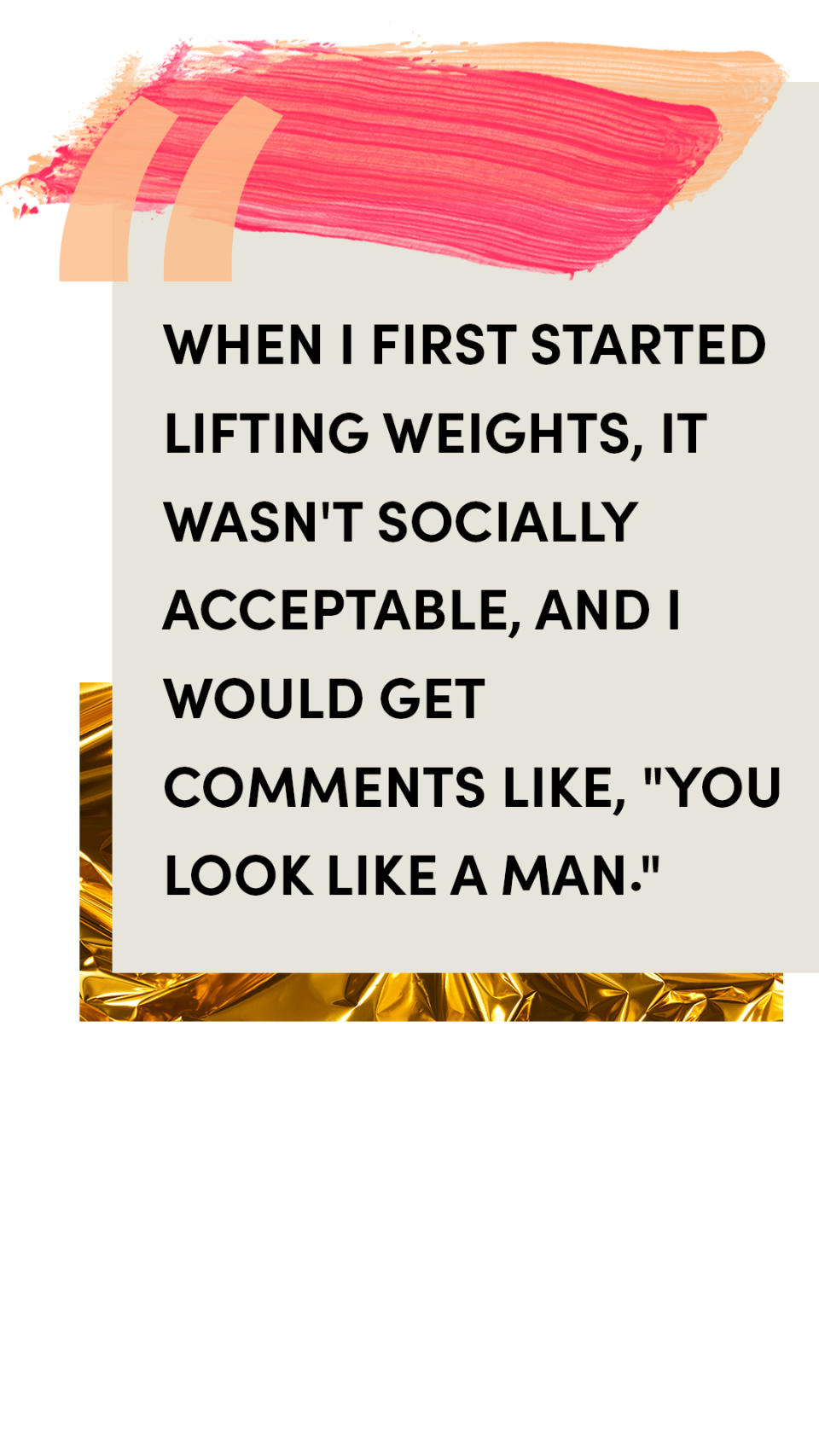This Woman Went from Trailer Park to Insta Queen

"I don't want people to think my life is perfect, because it's not," says Paige Hathaway, a 30-year-old fitness model with more than 4 million Instagram followers and a seven-figure annual salary.
On Instagram, the jet-setting fit-fluencer's chic lob, pouty lips, contoured cheeks, and defined abs make it easy for fans to overlook Paige's rocky start: After a tumultuous childhood, during which she shuffled between her maternal grandmother's Minnesota trailer home, her paternal grandmother's Oklahoma home, and foster care, Paige moved out at age 16 before hustling her way into the fitness modeling industry in her mid-twenties. She says it’s been years since she’s spoken to her parents, who divorced when she was young. And although Paige wants to start a family of her own, she's found it difficult to find a partner who doesn’t use her for personal gain.
As the new spokesperson for F45, an Australian fitness studio gym expanding across the U.S., Paige hopes to expand her reach globally and reposition her brand so she is more relatable to women with interests beyond bodybuilding. Here, Paige explains why her highly filtered Los Angeles life isn't as flawless as her feeds may suggest.
How did you get into bodybuilding?
I played sports like soccer growing up and took fitness classes, then when I was 24, a guy at my gym offered to train me for one of the largest state bodybuilding competitions for free - he was opening a gym at the time, but I have no idea why he was so insistent since I had very little muscle at the time. I agreed to try it and won second place. I was like, "Oh my God. This is it. This is what I want to do."
Although I lost the next two competitions and decided they weren't my thing, while training, I wrote to every magazine I knew about fitness modeling. In 2013, after about five months, Women's Health invited me to New York City for an open casting call. They wouldn't hire me without an agent, but when I went to a modeling agency, I was rejected. At the time, I was bummed, but used the feeling as motivation when I went back to Oklahoma, where I'd been living. I got on Model Mayhem, a site that connects photographers and models, launched my Instagram account, and started posting professional photos.
I reached out to brands like Muscle and Fitness magazine and offered to do fitness videos and magazine covers for free, but what really grew my following was Instagram's former Popular page. Whenever I was featured on it, big pages would repost my photos, until I was seen by the supplement company, Shredz. They approached me to be their spokesperson, and I worked with them for about two years, during which I gained 1 or 2 million followers. It blew up, and my career grew from there.

Has the body-positivity movement, which promotes self-acceptance regardless of one's body shape and size, affected your fitness goals?
When I first started lifting weights, it wasn't socially acceptable, and I would get comments like, "You look like a man." Now everything is evolving, and I get fewer comments like that on social media, but I haven't really changed my fitness goals. I think it's amazing how our generation has made muscles more socially acceptable for women.
As a fitness model in the public eye, what kind of criticism hurts your ego?
Last year, I posted a boxing photo (below) where I looked super shredded. There were so many comments like, "Why would you do that to yourself?"
At first I worried for about a month whether I was getting too muscular. After my manager reminded me that everyone in the public eye gets these kind of comments, and all publicity is good publicity, I realized I can't let these people get in my head.

